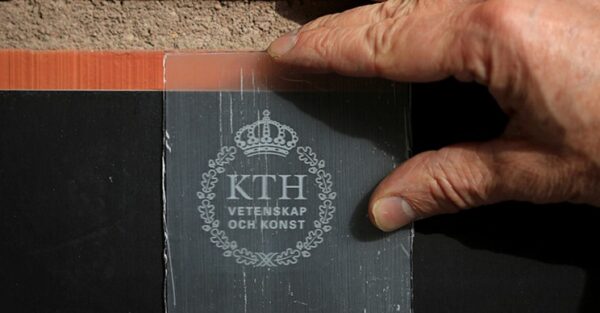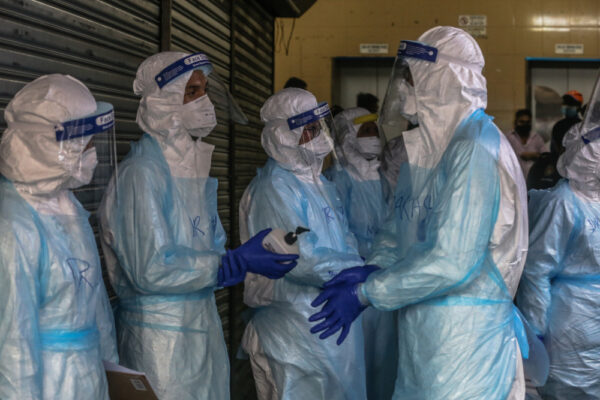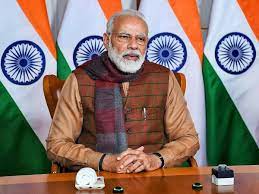The single dose of Covid-19 vaccine using recommended drugs for two doses for maximum immunity can cut the Coronavirus household transmission by half, a new study suggests. Research, conducted by the health of the British British community (PHE), saw how much the possibility of Covid-19 can be forwarded among the people who live in the same house after even partial vaccinations have been given.
PHE views two Covid-19 vaccines, Pfizer Biontech and AstraZeneca. From both, only the first is currently used in the US, although both drugs are distributed in England and elsewhere. Each recommends two doses, given for about a month apart, so that individuals see the maximum immunity of severe cases of Coronavirus which might cause hospitalization or even death.
However, what vaccines do not do, prevent people from capturing Covid-19 at all. Instead, they are intended to reduce the severity of the infection, so they are not a threat of life. Some people who have caught Covid-19 after being vaccinated had reported it felt more similar to colds or flu, although the experience varied.
The remaining questions, meanwhile, have been around the impact of vaccination on Covid-19 transmission. With the immunization process, the population plots are still not vaccinated; It is not clear how the possibility of people who are vaccinated will pass the Coronavirus to the group that is not vaccinated. The deterioration of confusion is that Covid-19 asymptomatic – where there are no symptoms displayed, but individuals can still be contagious – it seems more likely than a symptomatic case among vaccinated groups.
“This new research shows that those infected 3 weeks after receiving a dose of Pfizer-Bontech or Astrazeneca vaccine between 38% and 49% less likely to continue the virus to their household contacts than those who are not vaccinated,” PHE said today from his research. “Protection is seen from about 14 days after vaccination, with similar levels of protection regardless of the age of the case or contact.”
Meanwhile, the organization said, vaccinated people were reduced at risk of developing a symptomatic Covid-19 infection to start. It was said about 60-65 percent from four weeks after the first dose of one of two drugs.
“Households are high-risk arrangements for transmission and provide initial evidence of the impact of the vaccine in preventing the next transmission,” PHE added. “Similar results can be expected in other settings with similar risk transmissions, such as accommodation and joint prison.”
England British health views more than 57,000 contacts from 24,000 households, where there are cases that are confirmed by laboratories that have received vaccination. It compared with almost 1 million contact cases that were not vaccinated.
“Not only vaccines reduce the severity of the disease and prevent hundreds of deaths every day, we now see them also have an additional impact to reduce the possibility through Covid-19 to others,” Dr Mary Ramsay, Head of Immunization in PHE, said about the findings. “I encourage anyone who is offered a vaccine to take it as soon as possible.”
US CDC announces changes to the guidelines for people who are fully vaccinated – that is, people who have waited two weeks after the final dose of their vaccine, whether it becomes a single dose or two-dose drug – and people who are not vaccinated when outside the room. Now it is considered safe for people who are fully vaccinated and not vaccinated to carry out outdoor activities such as walking and cycling without wearing masks, CDC suggests, although events in the room can still be a significant risk.

![How To Fix [pii_email_cbd448bbd34c985e423c] Error Code](https://tomtomworks.com/wp-content/uploads/2021/09/How-To-Fix-pii_email_cbd448bbd34c985e423c-Error-Code-520x293.jpg)










![Have you been encountering the [pii_email_2c5d108980d117c8ca52] error while trying to send or receive emails using your Outlook account, you’re not alone. It’s a standard Outlook error that sometimes gets triggered thanks to network connectivity issues. However, several other factors also can cause you to run into the said error. The good news is that you simply can troubleshoot this error by yourself. during this guide, we are getting to mention various factors that cause the PII error and what methods you'll utilize to repair it. So, with none further ado, let’s start . What Causes the [pii_email_2c5d108980d117c8ca52] Error in MS Outlook In general, the error occurs when MS Outlook fails to determine a secure reference to the e-mail server. But, as we mentioned earlier, there are many other reasons which will trigger this error also . a number of these reasons include: Your device isn't connected to a lively Internet connection Your Outlook profile has been damaged thanks to external factors There are incorrect antivirus configurations on your PC FIles on your POP3 server are damaged How to Fix [pii_email_2c5d108980d117c8ca52] Error So, now that you simply know what triggers the [pii_email_2c5d108980d117c8ca52] error in Outlook, let’s take a glance at the solutions that’ll assist you fix it. Also examine the way to fix outlook [pii_email_316cb5e2e59f1ce78052] error Check Your Internet Connection Since a poor network connection is that the primary explanation for the error, start by checking your Internet connection. confirm that your device has active Internet connectivity. you'll try accessing other online services to ascertain if the web is functioning or not. Change Antivirus Configurations If you've got recently installed an Antivirus program on your PC, it'd be configured to automatically scan emails. If that’s the case, the Antivirus will restrict the Outlook app from functioning properly. So, confirm to vary the Antivirus Configurations by disabling the “Email Scanning” feature. Reinstall/Update Outlook Reinstalling or updating Outlook to the newest version is yet one more effective thanks to fix the [pii_email_2c5d108980d117c8ca52] error. When you’ll reinstall the app, all the damaged temporary files are going to be deleted and therefore the root of the matter are going to be eliminated also . Clear Unnecessary Emails from Outlook Folder If your primary inbox has too many unnecessary emails, they’ll cause bandwidth issues. this is often the rationale it’s always advised to clear the unnecessary emails from your Outlook folders. While you’re at it, confirm to clear the Trash also . this may help your Outlook app to deliver optimal performance. Conclusion So, if you’ve been encountering the [pii_email_2c5d108980d117c8ca52] error for a short time now, the above-mentioned will assist you fix the matter . Follow these tricks and access your Outlook account with none hassle.](https://tomtomworks.com/wp-content/uploads/2021/09/How-to-fix-outlook-pii_email_2c5d108980d117c8ca52-er-200x200.webp)

![How To Fix [pii_email_71e6bcfa8a2bee2aa151] Erro](https://tomtomworks.com/wp-content/uploads/2021/09/How-To-Fix-pii_email_71e6bcfa8a2bee2aa151-Erro-200x200.jpg)




